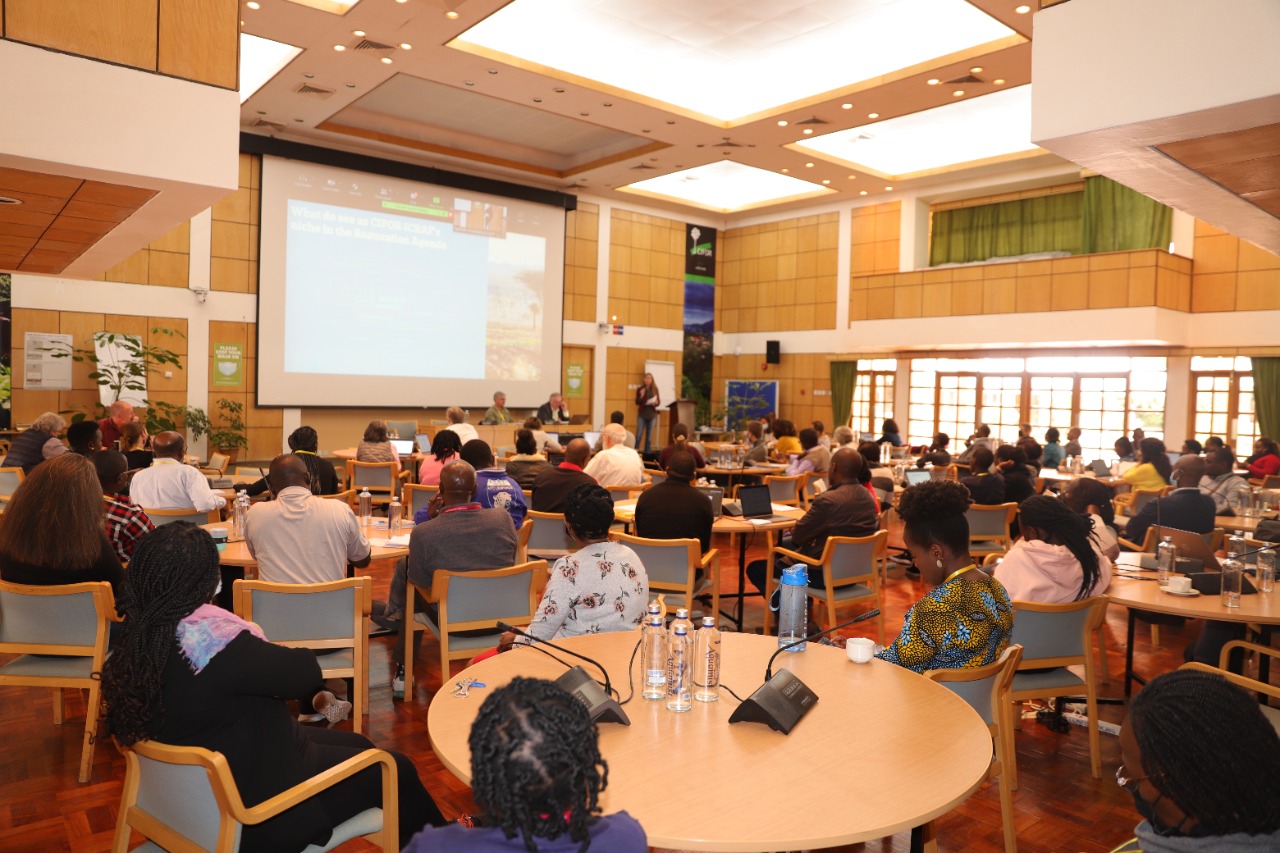
The consensus is clear: without keen attention to inequities in power and resources, efforts to address the entwined climate, biodiversity, and food crises will fail. Moreover, the uneven impacts of these crises are likely to exacerbate inequality across the globe, entrenching poverty further and increasing the likelihood of conflict.
That’s why, as both a pragmatic response and a moral imperative, the Center for International Forestry Research and World Agroforestry (CIFOR-ICRAF) threads a focus on equity and inclusion through all of its work with and for communities, partners, and governments. This year, ‘Equity in Action’ is also the focus of CIFOR-ICRAF’s Science Week, which will take place online from 8-12 May.
The annual event brings together the organisation’s staff from across the globe to connect and engage on the critical global challenges it confronts: namely, deforestation and biodiversity loss; broken food systems (including degradation of land and water resources); climate change; inequality; and unsustainable supply and value chains.
In previous years, Science Week has been a strictly internal affair (though several of the 2022 sessions were made available on YouTube following that year’s event). This year, however, many of the sessions will be available to the public to attend virtually, via free streaming on the organisation’s Facebook page and YouTube channel.
When the conference kicks off on 8 May, viewers can catch the opening remarks and keynote speech of Éliane Ubalijoro, CIFOR-ICRAF’s new CEO.
Ubalijoro has a long track record in working on equity issues, and has focused much of her working life on improving food security and improving the lives of women and smallholder farmers in emerging countries. She comes to CIFOR-ICRAF from twin roles as Executive Director of Canadian think tank Sustainability in the Digital Age (SDA) and Professor of Practice for public-private sector partnerships at McGill University‘s Institute for the Study of International Development. At SDA, she was particularly concerned with the ‘digital divides’ that limit women’s, rural communities, and least-developed countries’ access> to digital technologies.
Midweek, 10 May has been dubbed ‘Partner Day’ to celebrate how CIFOR-ICRAF’s work with partners contributes to just transitions and equitable transformations in Indonesia, as well as discussing ways to enhance existing partnerships and identify new areas for collaboration.
Presenters will include governmental representatives, such as Ary Sudijanto, Director General of the Agency for Standardization of Environment and Forestry Instruments, Ministry of Environment and Forestry, and Moch. Edy Yusuf (Assistant Deputy of Plantation Agribusiness Development, Coordinating Ministry of Economic Affairs); university representatives, such as Ni Luh Watiniasih (Udayana University) and Ali Suhardiman (Mulawarman University); and civil society representatives, such as Gita Syahrani (Director of Indonesia’s Sustainable Districts Association) and Diah Suradiredja (Kehati Foundation).
Most of the day will be live-streamed, including a session by CIFOR-ICRAF food and nutrition scientist Mulia Nurhasan. She will show how the organisation is working to address sustainability and equity issues simultaneously, by conducting research to support the wide range of inclusive ‘green growth’ strategies and initiatives being carried out by partners. Developmental and environmental objectives are still widely perceived as a “zero-sum struggle”, and much of the organisation’s work in recent years has sought to highlight how to meet both kinds of goals in a symbiotic fashion.
Later that day, and also on the public livestream, CIFOR-ICRAF principal scientist Daniel Murdiyarso and senior scientist Himlal Baral will hone in on an example of such research from their collective decades of experience. They’ll demonstrate how landscape-level restoration in wetland ecosystems such as peatlands and mangroves can address climate challenges in conjunction with livelihood issues. These ecosystems are often extremely rich in carbon, and provide services such as water cycling and flood protection which are particularly critical in the face of climate change impacts. However, they frequently face tremendous pressure from conversion for other uses such as agriculture and urban development. The session will show how restoration, adaptation, and mitigation measures can – and should – be seen as an opportunity to enhance the livelihoods of local communities.
Also on 10 May, Indonesia Deputy Country Director for CIFOR-ICRAF, Herry Purnomo, will tease out some of the knotty equity challenges wrought by international climate change mitigation and biodiversity efforts. Specifically, he’ll discuss a new EU law that’s designed to prevent companies from placing commodities on its market that are linked with deforestation and forest degradation, or exporting them from the EU. While the intent is laudable, the risk of sidelining the millions of smallholder farmers who currently supply the EU market, through increased compliance costs, is real. Purnomo will take viewers through the new law’s implications and consider the way forward for global trade, the environment, and smallholder farmers. The session will offer insights from consumer and producer countries, civil society and research organisations, and will highlight palm oil and timber as case studies.
To make sure you don’t miss out on these sessions – and plenty more – be sure to follow CIFOR-ICRAF on Facebook, YouTube, and/or Twitter, and sign up for email updates here. To catch up on last year’s Science Week, check out our YouTube playlist.













